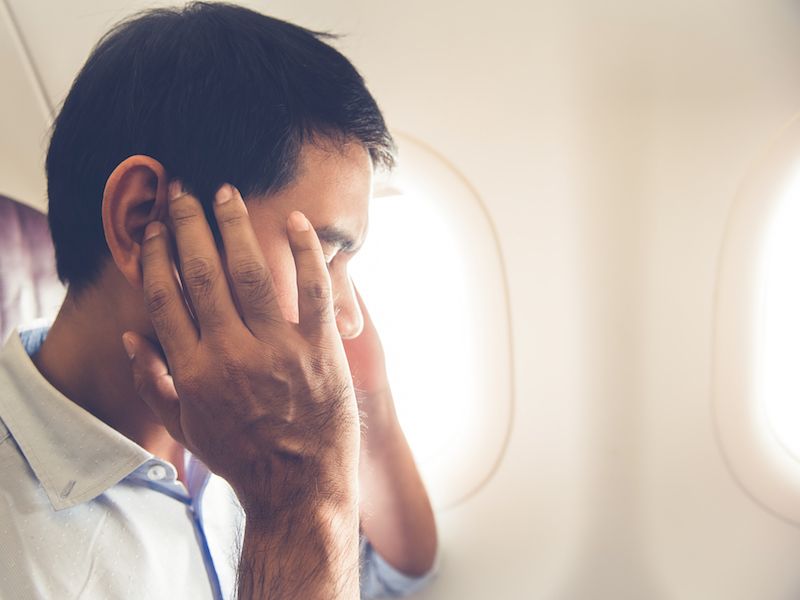
With tinnitus, it’s typical to have good and bad days but why? Tinnitus is the medical name for ringing in the ears, a condition that more than 45 million Americans experience, according to the American Tinnitus Association, and 90 percent of them also have some level of hearing loss.
But what is difficult to comprehend is why it’s virtually non-existent on some days and on others the ringing is so invasive. It’s not entirely clear why this occurs, but some typical triggers may clarify it.
What Is Tinnitus?
Tinnitus describes a condition where the patient hears phantom noises such as:
- Hissing
- Buzzing
- Roaring
- Ringing
- Clicking
You hear it, the guy beside you can’t, which is part of what makes tinnitus so disturbing. The noise can vary in pitch and volume, too. It may be gone one day and the next it’s a roar.
Exactly What is The Cause of Tinnitus?
Alterations in a person’s hearing are the most prevalent cause. These changes may be due to:
- Aging
- Noise trauma
- Ear bone changes
- Earwax build up
A few other possible causes include:
- An issue with the carotid artery or jugular vein
- Tumor in the neck or head
- High blood pressure
- Meniere’s disease
- Atherosclerosis
- TMJ issues
- Head trauma
- Acoustic neuroma
For a small fraction of people, there is no apparent explanation for them to have tinnitus.
If your tinnitus has just started, see your doctor to determine what is going on with your ears. The issue could be a symptom of a life threatening condition like heart disease or it might be something treatable. A side effect of a new medication may also be the cause.
Why Does the Ringing Get Worse on Some Days?
For those who have tinnitus it’s a medical mystery why it gets worse on some days. The reason could be different for each person, also. However, there may be some common triggers.
Loud Events
Your tinnitus can be aggravated by loud events such as concerts, club music, and fireworks. The number one way to go is to use hearing protection if you expect a lot of noise. They make earplugs, for example, that will permit you to enjoy music at a concert but reduce the impact it has on your ears.
Another thing you can do is to put some distance between you and the source of the noise. When you go to a fireworks show don’t go up front and stay away from the front row at a live performance. Combined with hearing protection, this will diminish the impact.
Loud Noises at Home
Loud noises in your house can also be harmful. Tinnitus can be triggered by a lawn mower for example. Think about other things you do at home that could be an issue:
- Woodworking – The tools you use are enough to cause a problem
- Laundry – If you fold clothing while the washer is running, for example.
- Wearing headphones – The function of headphones is to increase the volume of your audio which could be aggravating your tinnitus so it could be time to lose those earbuds.
If you can’t avoid loud noises at least use hearing protection.
Noises at Work
Loud noises at work are just as harmful as any other. It’s particularly important to use hearing protection if you work in construction or are around machinery. Your employer will most likely provide hearing protection if you inform them of your worries. Let your ears rest during your off time.
Air Pressure Changes
Many people have experienced ear popping when they fly. An increase in tinnitus can happen from the noise of the plane engine and the change in pressure. If you are traveling, take some gum with you to help neutralize the air pressure and think about ear protection.
Changes in air pressure happen everywhere not just on a plane. Taking the right medication to alleviate sinus pressure is also helpful.
Medication
Speaking of medication, that could also be the issue. Certain drugs are ototoxic, meaning they have an impact on the ears. Included on this list are these common medications:
- Diuretics
- Over-the-counter pain relievers
- Antibiotics
Consult your doctor if you experience a worsening of tinnitus after you begin taking a new prescription. It may be feasible to switch to something else.
Tinnitus is an annoyance for some people, but for others, it can be disabling. The first step is to find out what’s causing it and then consider ways to keep it under control from day to day.